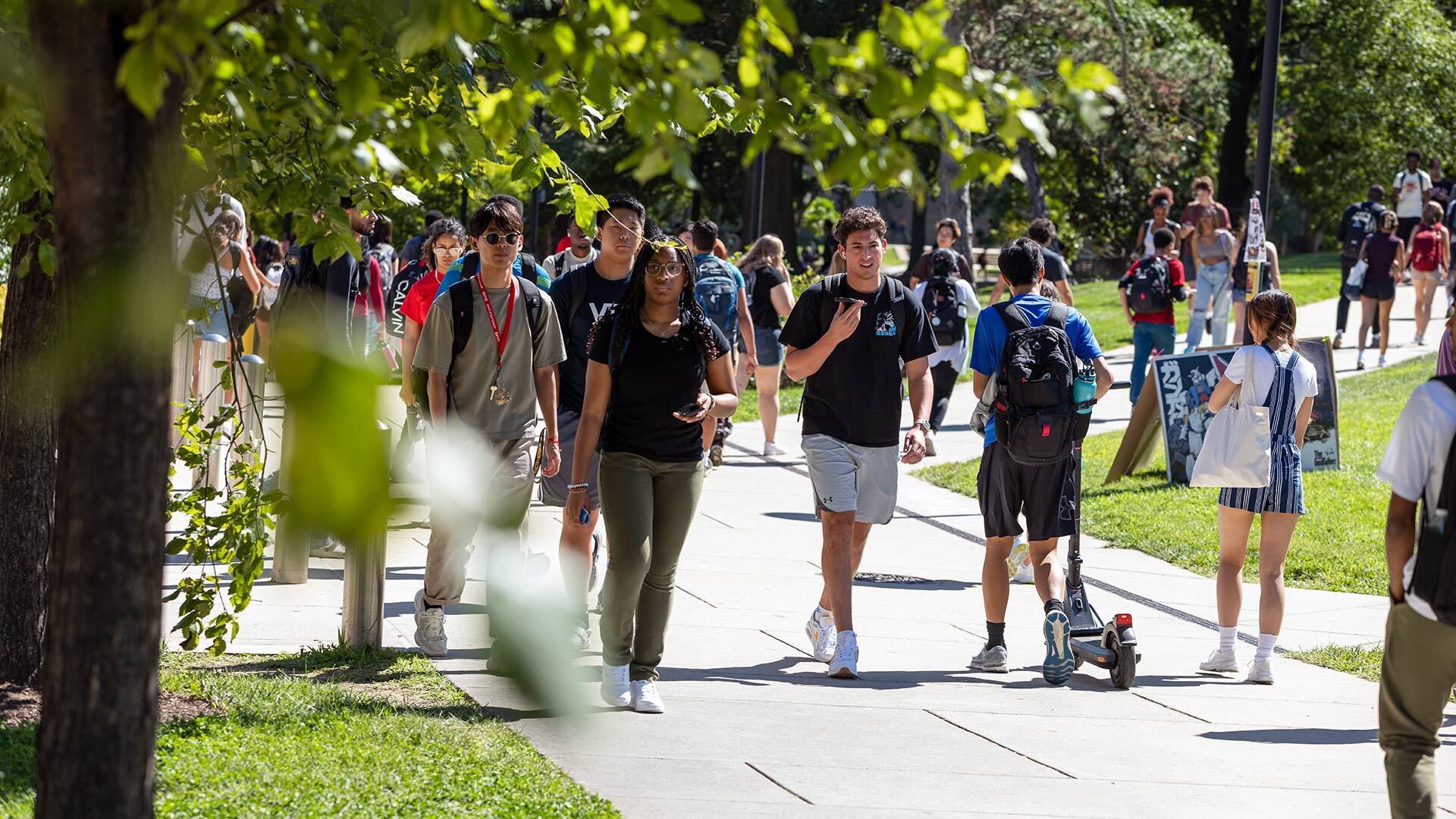- October 06, 2023
- By Maggie Haslam
Sometimes the fastest way to get to class isn’t on two feet, but two wheels. Now the University of Maryland is launching an effort to make biking and scooting across campus safer, too.
The Departments of Transportation Services (DOTS) and Facilities Planning will oversee a one-year feasibility study and design process to add separate bike/micromobility lanes to major campus corridors for the thousands of bikes, e-bikes and e-scooters that traverse UMD daily.
Supported by a $160,000 grant from the Maryland Department of Transportation’s Kim Lampier Bikeways Funding Program, the UMD Bikeways Project will help campus administrators evaluate the cost and environmental impact of bikeways, plan for traffic and construction, and connect to surrounding bikeways, transit hubs, trails and roads.
“This is a great opportunity for us to connect with riders and capture that information about how we can better improve the campus transportation experience,” said Marta Woldu, assistant director of sustainability for DOTS. “And this is about building a broader network to help people get across campus.”
The study comes at a time when micromobility is surging on campus. VEO, the e-bike and e-scooter company contracted by the university, sees 800-900 rentals daily, on top of the 1,300 privately owned e-bikes and e-scooters registered with campus this semester.
State law requires riders to use e-scooters and e-bikes on roads and designated paths, just like human-powered bicycles. The recent rise in micromobility vehicles, combined with the ongoing construction of the Purple Line, has made navigating campus roads a bit more challenging. Combined with safe and responsible riding practices, bike paths will be key to alleviating congestion on campus roadways.
The study will focus on four major segments of campus:
Mowatt Lane between Campus Drive Circle and Knox Road
Campus Drive/Mowatt Lane Circle to Presidential Drive and Fieldhouse Drive
Paint Branch Drive between University Boulevard and Campus Drive
The path between Paint Branch Trail and Stadium Drive
The project seeks to expand on existing infrastructure and plan for new projects in the works, said Woldu. That includes the state’s light-rail Purple Line, which will have a parallel bike lane (as well as five stops on or near campus) along its 16-mile route, and future residence halls, academic facilities and development within College Park.
The feasibility study will inform an initial design process, which will include evaluation of existing conditions on campus, a topographical analysis, a map of existing utilities and preliminary design concepts. Both the feasibility study and design phase, said Woldu, will inform university administrators’ funding requests and next steps for design and implementation.
“It's a great and important milestone for the future of biking on campus, and something that many in our community have been working toward for a long time,” she said.
DOTS Hosts Safety Month Events
The full list of events in October includes a D.C. bike trip, a haunted bike ride and several events focused on biking and scooting:
Register for DOTS’ Campus Bike and Scoot Tour from noon-1 p.m. Friday. Free helmets available on request.
Get your hands dusty from 2-5:30 p.m. Sunday for Chalk the Walk by creating temporary, colorful street murals on Tawes Plaza.
Register to join UMD-DOTS for a webinar on the Bikeways Project from noon-1 p.m. Monday. Up to 20 community members can register to participate in the in-person e-bike/e-scooter mobility audits on Oct. 12 and 18.
